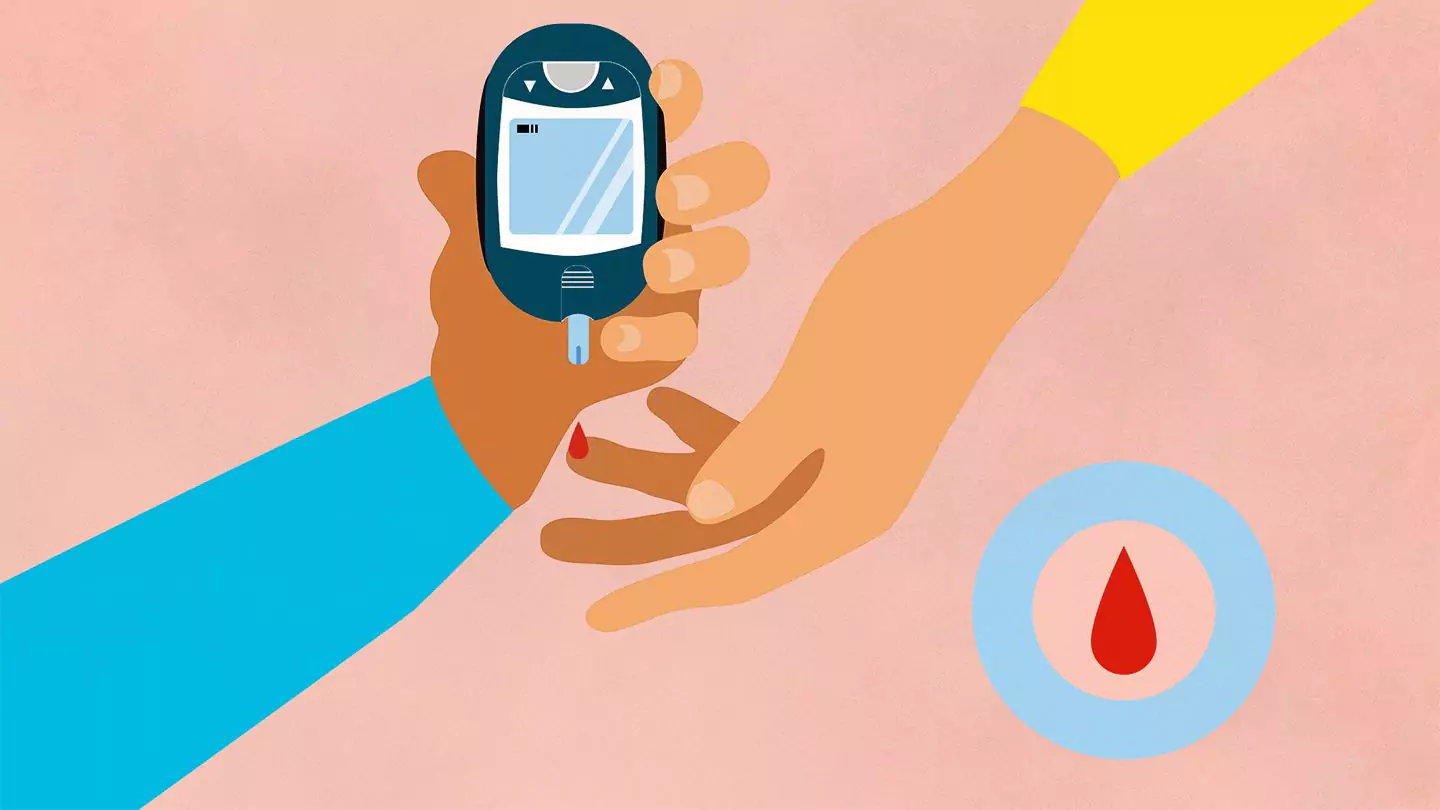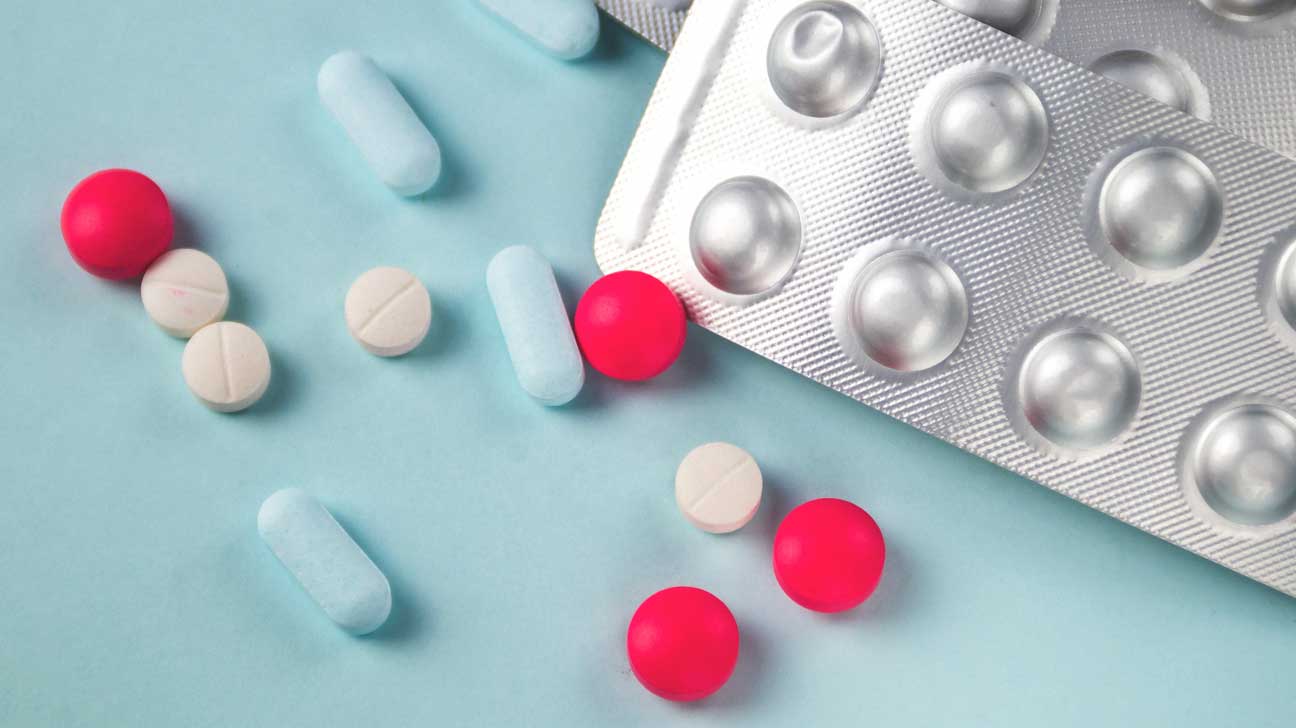
UP TO 40% OFF SITEWIDE






Low Blood Sugar Symptoms: When to Call 911


Table of Contents
- WHAT TO DO WHEN BLOOD GLUCOSE IS TOO LOW?
- HOW TO PREVENT LOW HYPOGLYCEMIA?
- WHAT IS THE MOST COMMON CAUSE OF LOW BLOOD SUGAR?
- CAN A PERSON WITHOUT DIABETES HAVE LOW BLOOD SUGAR?
- WHY DO BLOOD SUGARS DROP SUDDENLY?
- HOW DO I GET MY BLOOD SUGAR UP?
- WHAT HAPPENS IF BLOOD SUGAR GETS TOO LOW WHILE SLEEPING?
- HOW DO I KEEP MY BLOOD SUGAR STABLE ALL DAY?
- WHAT FOOD STABILIZES BLOOD SUGAR?
- About the author:
When blood sugar levels drop too low, it's called hypoglycemia. Hypoglycemia can happen to anyone who has diabetes or not. Symptoms of blood sugar being too low can be different for each person and can range from mild to severe. The most common symptoms are listed below. If you have any of these symptoms, check your blood sugar level immediately. - Feeling shaky - Sweating - Heart racing - Hunger - Dizziness or lightheadedness - Headache - Blurred vision - Irritability or mood changes

A brunette woman suffering from the heat, wiping herself off with a paper napkin, sunlight
If you have severe hypoglycemia and cannot eat or drink, you may need an injection of glucagon. Glucagon is a hormone that raises blood sugar levels quickly. It is essential to always have glucagon with you in case of severe hypoglycemia. If you have questions about how to use glucagon, talk to your healthcare team.
Shaking is the most prevalent symptom of hypoglycemia, followed by perspiration, anxiety, heart palpitations, and feeling either too hot or too cold.
In addition to them, additional symptoms may include a headache, hazy vision, nausea, weakness, and difficulty concentrating. Seizures, unconsciousness, and even death have been linked to hypoglycemia in its most severe forms. It is termed low blood sugar when levels drop below 70 mg/dL; if it is not addressed, it can be dangerous to the patient.
Low blood sugar levels can cause several symptoms, including lightheaded or dizziness, sweating excessively, having a rapid heartbeat, and feeling hungry. If your blood sugar level falls below 54 mg/dL, you must seek medical attention as soon as possible. Seizures, loss of consciousness, and even death are all possible outcomes when blood sugar levels drop to dangerously low levels.
If you have any reason to believe that your blood sugar levels are approaching dangerously low, you must check them as soon as possible and take measures to increase them (like eating or drinking something with sugar). If you cannot raise your blood sugar levels on your own, you should dial 911 to get immediate medical assistance.
WHAT TO DO WHEN BLOOD GLUCOSE IS TOO LOW?
If you have diabetes, you know that low blood sugar can be potentially life-threatening. The onset of frightening symptoms including dizziness, sweating, and confusion can occur suddenly and without warning. Because of this, it is essential to ensure that you always have a glucagon prescription on hand.
In the event that an extreme emergency arises due to low blood sugar, an injection of the hormone glucagon might be given to the patient. Glucagon is responsible for helping to boost blood sugar levels. If you or someone you care about has diabetes, it is imperative that you always have a glucagon prescription on hand in case an emergency arises.
It is possible for there to be a major medical emergency if the levels of sugar in the blood drop too low. It is imperative that you take immediate action if you are experiencing severe symptoms of low blood sugar. Gvoke and Baqsimi are examples of prescription glucagon medications that could be utilized in these scenarios. The effect of both of these medications is to raise the levels of sugar in the blood.
In contrast, Baqsimi comes in the form of a powder that has to be inhaled, while Gvoke is given to the patient intravenously. Both are efficient in treating the symptoms of low blood sugar and can assist in reducing the risk of developing significant health consequences. If either of these medications were prescribed to you, it is critical to carry them with you at all times so that you can use them in the event of a medical emergency.
HOW TO PREVENT LOW HYPOGLYCEMIA?
Hypoglycemia, often known as low blood sugar, is a condition that can be brought on by several different things, such as engaging in severe physical activity, taking specific drugs, or forgoing meals. Low blood sugar can cause several symptoms, including unsteady, sweating excessively, beating heart, and dizzy. Hypoglycemia can result in more serious complications if it is not treated in a timely manner, such as seizures and coma.
On the other hand, there are a number of things you can take to keep your blood sugar levels from falling to dangerously low levels. To help keep your blood sugar stable all day, eating regular meals and snacks containing carbohydrates is important.
If you are going to exercise, make sure to eat a carbohydrate-rich snack beforehand If you have diabetes, for instance, it is essential to keep close track of your blood sugar levels and ensure that you always have a source of glucose that works quickly on you at all times. It is also important that you do not miss meals or go for extended periods without eating.
If you are taking medicine that has the potential to lower your blood sugar levels, you must discuss hypoglycemia prevention strategies with your treating physician. You can assist in preventing episodes of low blood sugar by taking these precautions and following these guidelines. Moreover, the sugarMD diabetes supplements are made to aid in the maintenance of stable blood sugar levels, and they do so effectively.
WHAT IS THE MOST COMMON CAUSE OF LOW BLOOD SUGAR?
If you have diabetes and take certain oral drugs, such as sulfonylureas, glipizide, glimepiride, or glyburide, you risk experiencing low blood sugar. Sulfonylureas are a type of diabetes medication that helps to lower blood sugar levels. However, sulfonylureas can cause low blood sugar symptoms such as dizziness, shakiness, and sweating in some people. This happens because the medication causes the pancreas to release more insulin than normal.
Insulin is a hormone that helps to regulate blood sugar levels. When there is too much insulin in the blood, blood sugar levels can drop too low. If you are taking a sulfonylurea medication and experiencing low blood sugar symptoms, be sure to talk to your doctor. They may recommend adjusting your dose or switching to a different medication.
However, persons who take insulin are most likely to experience this complication. Metformin, Ozempic, Mounjaro, Rybelsus, Jardiance, and Farxiga do not induce symptoms of low blood sugar on their own; these side effects only occur when the medications are taken in conjunction with insulin or sulfonylureas. Taking excessive insulin or other diabetes medicine is one of the most common causes of diabetic hypoglycemia.
Another prevalent explanation among people who take insulin is that they do not eat enough after taking a specific dose of the medication. If you have diabetes and are experiencing signs of hypoglycemia, you must seek treatment as soon as possible. Consuming a sugary food or beverage will cause a rapid increase in the amount of glucose (sugar) in your blood.
Hypoglycemia can cause various symptoms, including instability, sweating excessively, having a beating heart, confusion, and hunger. Suppose you have diabetes and experience hypoglycemia regularly. In that case, you should consult your physician about making changes to your diet or medication to help prevent future instances of the condition. Furthermore, SugarMD diabetes supplements are specifically designed to help maintain stable blood sugar levels, and they work.
CAN A PERSON WITHOUT DIABETES HAVE LOW BLOOD SUGAR?
Some non-diabetic patients may experience reactive hypoglycemia/low blood sugar. This occurs when a person is sensitive to carbohydrates. When they consume carbohydrates, their blood sugar rises, causing insulin to be released. Simple carbohydrates cause blood sugar to disappear rapidly, but insulin remains in the system.
As a result, blood sugar levels may drop 1 to 2 hours after consuming simple carbohydrates like cookies, crackers, cakes, bread, or cereal. To avoid this, combine protein and fat in your diet. This will be the best option. Another cause of hypoglycemia/low blood sugar is alcohol. If someone consumes alcohol without consuming any other nutrients, hypoglycemia/low blood sugar will occur within the next 8-10 hours.
That could explain why a lot of people are ravenous the following day after drinking. In a fasted state, alcohol prevents the liver from producing glucose. As a result, you will not be able to get help from the liver during fasting after alcohol, as you would otherwise. You may be more prone to low blood sugar if you have severe chronic kidney or liver disease. In a fasted state, the liver and kidney contribute to glucose production.
WHY DO BLOOD SUGARS DROP SUDDENLY?
Have you ever been going about your day and all of a sudden had the sensation that you were going to pass out? Chances are, your blood sugar has decreased suddenly. Hypoglycemia, often known as low blood sugar, is a condition that occurs when there is not enough sugar in the blood. After you eat, your blood sugar level should normally go up.
But if you have diabetes, your blood sugar level might sometimes drop dangerously low, even if you haven't eaten in a while. This can happen even if you don't exercise. This can occur if you take an excessive amount of insulin or any other diabetic medication if you skip a meal, or if you exercise more than you normally would.
Feeling unsteady, sweating excessively, having a quick heartbeat, and experiencing dizziness or lightheadedness are all symptoms of having low blood sugar. When blood sugar levels go too low, it might pose major health risks. Because of this, it is essential to know how to treat low blood sugar. If you have diabetes, you should discuss the best ways to avoid experiencing low blood sugar with your physician.
HOW DO I GET MY BLOOD SUGAR UP?
When you feel as though your blood sugar levels are beginning to drop, you can try a few different things to bring them back up. Consume anything sweet like fruit juice, soda, candy, or cake, all of which contain sugar in varying degrees.
If you have diabetes, you should always have hard candy or glucose pills with you so that you may take them as soon as you begin to feel the effects of a drop in your blood sugar. Eating a tiny amount of protein, such as an egg that has been hard-boiled or some peanut butter, can also assist in decreasing the release of sugar into your bloodstream.
You can test this by giving either of these options a try. If, after 15 minutes, your blood sugar level is still low, you should eat or drink more sugar. And if you start to suffer symptoms like confusion or fainting, you should call 911 as soon as possible since these could be signs of a more serious illness called diabetic ketoacidosis.
WHAT HAPPENS IF BLOOD SUGAR GETS TOO LOW WHILE SLEEPING?
A person is low while sleeping can cause them to feel weary, have headaches, feel dizzy or lightheaded, struggle to concentrate, have tremors or shaky hands, feel hungry, have an irregular pulse, or sweat more than is typical for them. People who suffer from hypoglycemia are more likely to get seizures and go unconscious. You must seek treatment as soon as possible if you have any of these low blood sugar symptoms while asleep.
The most effective strategy to cure hypoglycemia is to consume anything that will quickly raise your blood sugar levels, such as food or drink. This includes sweets, fruit juice, honey, milk, and foods based on starch like crackers and bread. Other examples include candies and fruit juice.
In addition, you should monitor the amount of sugar in your blood every 30 minutes after eating or drinking anything until it returns to normal. If you frequently have hypoglycemia while asleep, you may need to alter the amount of insulin you take or consume a snack before bed that includes both protein and carbohydrates. In addition, SugarMD diabetes supplements are explicitly designed to help maintain stable blood sugar levels, and they do work.
HOW DO I KEEP MY BLOOD SUGAR STABLE ALL DAY?
At some time during the day, you are likely to go through what is known as a "blood sugar drop," which affects most people. Maintaining a steady sugar level in your blood throughout the day can be challenging, especially in the late afternoon or after dinner. There are a few things you can do to assist in maintaining a steady amount of sugar in your blood throughout the course of the day.
To begin, you should prioritize consuming breakfast within the first hour after waking up. This will assist in kicking-starting your metabolism and preventing blood sugar falls later on in the day. Second, be sure that each meal has both protein and healthy fats. This will assist in lowering the rate at which sugar is released into your system and preventing spikes in your blood sugar levels.
Finally, make an effort to steer clear of simple carbs as well as sugary snacks. These foods are known to trigger spikes in blood sugar, which a collapse will inevitably follow. If you follow these guidelines, you can help to maintain a steady amount of sugar in your blood throughout the day.
WHAT FOOD STABILIZES BLOOD SUGAR?
When blood sugar levels are low, many symptoms can be brought on, ranging from feeling weary and irritable to having difficulty concentrating on tasks. The good news is that certain meals can assist in maintaining stable blood sugar levels and ward off the manifestation of these symptoms. It takes longer to digest foods with protein and fiber, so choosing foods high in both nutrients is a good decision because they provide a slow and constant release of energy.
Complex carbs, such as whole grains, are another alternative worth considering because they help to keep blood sugar levels stable and do not cause increases in blood sugar levels. In addition, it is essential to maintain proper hydration at all times by consuming a sufficient amount of water throughout the day.
You can assist keep your blood sugar levels under control and avoid any negative side effects by making simple diet changes. In addition, SugarMD diabetes supplements are explicitly designed to help maintain stable blood sugar levels, and they do work. Check them out. For people with diabetes, managing blood sugar levels can be a full-time job.
A little too much sugar is in the bloodstream and you could be in for a dangerous drop in blood sugar levels. Conversely, let blood sugar get too low and you could experience some severe health problems. That's where SugarMD comes in. SugarMD is a line of supplements designed to help keep blood sugar levels stable. The supplements are made from natural ingredients and are clinically proven to help maintain healthy blood sugar levels. So if you're looking for a way to keep your blood sugar levels in check, SugarMD is a great option.
About the author:
Who is Dr. Ergin? Dr. Ahmet Ergin is an endocrinologist interested in and passionate about diabetes care. Dr. Ergin earned his medical degree with honors at Marmara University School of Medicine in Istanbul, Turkey.
Then, he completed his internal medicine residency and endocrinology fellowship at Cleveland Clinic in Cleveland, Ohio. He is a board-certified Internal Medicine and Endocrinology, diabetes, and metabolism physician. He is also a certified diabetes education specialist.
Disclaimer: Any information on diseases and treatments on this website is for general guidance only and must never be a substitute for the advice your doctor or other qualified healthcare professional provides. Always seek the advice of your physician or other qualified health care professional with questions you may have regarding your medical condition.
Written By Dr. Ahmet Ergin
466 total articles
Meet Dr. Ahmet Ergin, a highly skilled and dedicated endocrinologist with a passion for diabetes care. Dr. Ergin earned his medical degree with honors from Marmara University in Istanbul. He completed internal medicine residency and endocrinology fellowship at Cleveland Clinic. Dr. Ergin is board-certified in Internal Medicine, Endocrinology, Diabetes, and Metabolism due to his vast medical expertise. He's a certified diabetes educator, author of “The Ultimate Diabetes Book,” and founder of “the SugarMD YouTube channel.” Dr. Ergin offers exceptional diabetes care to his patients in Port Saint Lucie, FL, helping them manage effectively. For a closer look into his insights and experiences, connect with Dr. Ahmet Ergin on LinkedIn, Instagram, and YouTube.”
Disclaimer: These statements have not been evaluated by the Food and Drug Administration. Information on this website isn't intended to treat, cure or prevent any disease. Discuss with your doctor and do not self-treat.
Products













